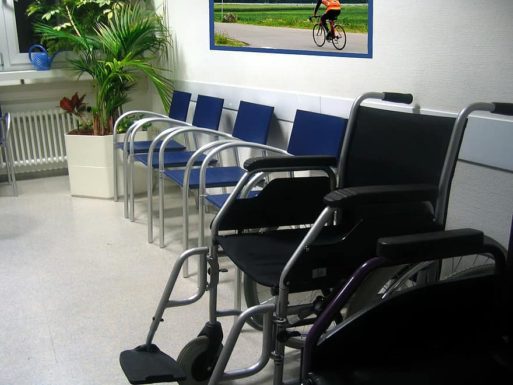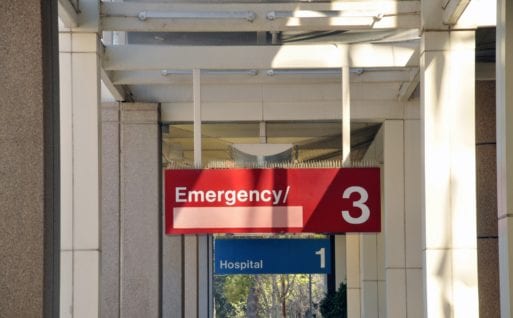 It’s well-known that COVID-19 has impacted the availability of medical services throughout the country. In regions hard-hit by the virus, hospitals and clinics are overwhelmed with new cases, and patients with less urgent medical conditions are often turned away. However, even where healthcare services are available, the pandemic is causing many Americans to forgo hospital visits for fear of contracting COVID-19.
It’s well-known that COVID-19 has impacted the availability of medical services throughout the country. In regions hard-hit by the virus, hospitals and clinics are overwhelmed with new cases, and patients with less urgent medical conditions are often turned away. However, even where healthcare services are available, the pandemic is causing many Americans to forgo hospital visits for fear of contracting COVID-19.
A recent poll found that one in four Americans would rather stay at home after suffering a heart attack or stroke than risk exposure at a hospital. The poll was conducted on behalf of the American Heart Association as part of its Don’t Die of Doubt campaign, which aims to address the risks posed by this missed care.
This reluctance to seek medical treatment can be dangerous and even fatal, especially when it comes to emergency care. According to the Centers for Disease Control and Prevention, emergency visits declined by 42% early in the pandemic compared to the same time last year. The CDC recommends using triage help lines and virtual visits to address medical needs while minimizing the risk of exposure.

Credit: neediix.com
Fear of contracting COVID-19 has led to a 42% drop in Emergency Room visits since the pandemic began.
While telehealth resources are increasingly available and can take the place of many in-person visits, some services simply can’t be performed remotely. From cancer screenings to physical therapy, many patients are forgoing any treatments that require entering a medical facility.
The risk of contracting COVID-19 is a real and powerful concern, but specialists warn that it must be weighed against more familiar — but equally dangerous — conditions. In an article for the New York Times, Dr. Barron H. Lerner recounted a diabetic patient’s hesitation to go to the ER after developing a toe infection. Lerner eventually convinced him to go, and the infection turned out to be a dangerous abscess that required immediate treatment.
Ironically, the fear of contracting COVID-19 can even prevent patients from receiving treatment for the virus itself. Lerner recalled one patient who was exhibiting symptoms of the coronavirus but didn’t want to get tested for fear of contracting the virus, even though she almost certainly had it already.
These new trends in healthcare access are troubling, and they may have significant consequences in the years to come. “There’s going to be a lag time before we see the results of all this missed care,” Dr. Burton Eisenberg, executive medical director of the Hoag Family Cancer Institute, told Kaiser Permanente. “In two or three years, we’re going to see a spike in breast cancer in Orange County, and we’ll know why.”

 Fear of Contracting COVID-19 Leads Many to Forgo Medical Visits
Fear of Contracting COVID-19 Leads Many to Forgo Medical Visits


 “Hand to Earth” by Andy Goldsworthy
“Hand to Earth” by Andy Goldsworthy

 Caring for a Dying Loved One? Be Gentle With Yourself.
Caring for a Dying Loved One? Be Gentle With Yourself.














